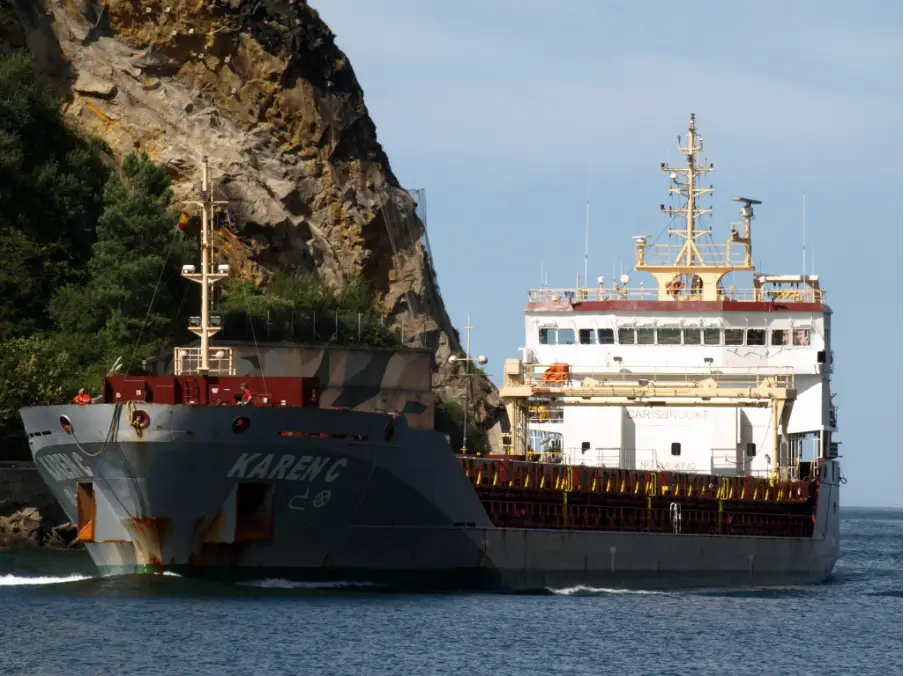
Two UK CCUS projects that look set to support low-carbon hydrogen projects in northeast Scotland and the Humber have been selected for Track 2 status by the UK Government.
The government today (July 31) confirmed that projects Acorn in Scotland and Viking in the Humber have been chosen as the third and fourth carbon capture usage and storage (CCUS) clusters in the UK, adding to HyNet and the East Coast cluster.
Ruth Hubert, Chief Executive of the Carbon Capture and Storage Association (CCSA) has praised the move, saying, “This CO2 infrastructure is critical to safeguarding the UK’s supply chain security, enabling local industries to continue to thrive whilst reducing their emissions as we transition to a Net Zero economy.”
Hubert also stressed the need for government to “urgently” provide clarity on the process and timeline for selecting sites within the Track 2 clusters. “Billions of pounds of investment is waiting to be deployed to decarbonise these industrial regions, but firm plans are required to secure it,” she said.
Project Acorn is planned to provide infrastructure to help industries and homes across Scotland and the UK to decarbonise, with plans to reform North Sea natural gas to generate hydrogen, with associated carbon dioxide (CO2) emissions storage under the sea.
Read more: Storrega, Shell and Harbour Energy equal partners of leading CCS and hydrogen project
Entry to the Track 2 process will allow the project develops to start detailed negotiations with the government and to continue working on the project.
Dr. Nick Cooper CEO of Storegga, lead developer of Acorn, said, “Today’s news is a defining milestone for us, and the Scottish Cluster. Acorn will be a major contributor towards meeting the UK and Scotland’s carbon reduction targets, able to serve emitters connected by pipeline and ship.”
Shell’s Senior Vice-President of UK Upstream Business, Simon Roddy, added, “The Acorn Project is a central part of plans to decarbonise North Sea operations, and to store emissions from other parts of Scottish industry. As Technical Developer, we bring Shell’s global experience of CCS and the delivery of major projects.”
While project Viking in the Humber, led by Harbour Energy with the support of bp, is targeting its first storage by 2027, in a region where there has been a wealth of hydrogen activity.
Linda Cook, CEO of Harbour Energy, said, “Viking has the potential to be transformational for the Humber, the UK’s most carbon intensive industrial region, creating thousands of jobs in the area and playing a vital role in supporting the UK to meet its target to capture 30 million tonnes of CO2 annually by 2030.”
The UK’s hydrogen strategy opts for a ‘twin-track’ approach, seeking to develop a total 10GW of low-carbon hydrogen production capacity by 2030, with 5GW set to be green.
Read more: UK unveils new energy security strategy doubling low-carbon hydrogen production to 10GW by 2030
Although the two CCUS projects look like a key step in meeting the low-carbon hydrogen portion of the target, the UK Government has today come under criticism after the Prime Minister, Rishi Sunak, also confirmed “hundreds” of new oil and gas licenses will be granted in the country.
The decision, having been described by some critics as “short-sighted,” has been defended by the government, which says it is predicts around 25{7bfcd0aebedba9ec56d5615176ab7cebc5409dfb82345290162ba6c44abf8bc8} of the UK’s energy demand will still be met by oil and gas “when the UK meets Net Zero in 2050.”
The government also says it is taking steps to slow the rapid decline in domestic production of oil gas to secure domestic energy supply.
“We have all witnessed how Putin has manipulated and weaponised energy – disrupting supply and stalling growth in countries around the world,” said Prime Minister Sunak.
He continued, “Now more than ever, it’s vital that we bolster our energy security and capitalise on that independence to deliver more affordable, clean energy to British homes and businesses.
“Even when we’ve reached Net Zero in 2050, a quarter of our energy needs will come from oil and gas. But there are those who would rather that it come from hostile states than from the supplies we have here at home.
“We’re choosing to power up Britain from Britain and invest in crucial industries such as CCS, rather than depend on more carbon intensive gas imports from overseas – which will support thousands of skilled jobs, unlock further opportunities for green technologies and grow the economy.”
Newsletters
H2 View knows just how much hydrogen news there is to keep on top of. Keep up to date on the latest developments across the industry with our daily newsletter that will give you the top five stories of the day, straight to your inbox.
Don’t forget we also have our weekly newsletter which includes a round-up of the past seven days’ hydrogen highlights, including not only news but also interviews, features and analysis.
Sign up for our newsletters.







